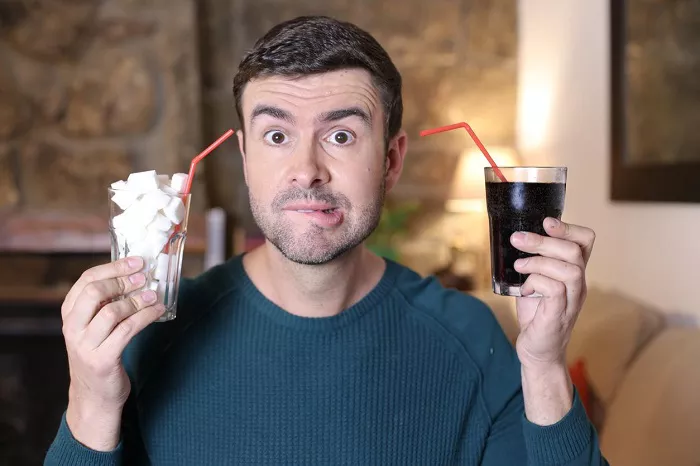A new study has found a connection between the consumption of sugar-sweetened beverages (SSBs) and male pattern hair loss (MPHL), the most common form of hair loss in men. MPHL affects around 6.5 million men in the UK, often starting with thinning hair and progressing to noticeable hair loss. Researchers suggest that nutrition plays a significant role in MPHL, with glucose processing potentially impacting hair health.
A team from Tsinghua University in Beijing, China, examined the link between SSB consumption and MPHL. The study revealed that men who consume higher amounts of SSBs are at a greater risk of developing MPHL. SSBs include drinks with added sugars like soda, fruit-flavored drinks, energy drinks, sweetened coffee, and tea.
The study, which involved 1,028 participants from 31 provinces in China, found that men with MPHL consumed nearly double the amount of SSBs compared to those without the condition. While the study shows a correlation, the researchers emphasize the need for further studies to confirm the connection.
Participants filled out a survey detailing their diet, lifestyle, and hair status. Over half of the participants reported MPHL, and those with the condition drank an average of 4.3 liters of sugar-sweetened beverages per week, compared to just 2.5 liters for those without MPHL. Men with MPHL also ate more deep-fried foods and sweets and consumed fewer vegetables.
The study also found that individuals with MPHL were more likely to be smokers, have a family history of hair loss, experience anxiety or PTSD, and have a lower education level. The researchers noted that excessive SSB consumption could contribute to MPHL by affecting blood sugar levels and triggering a process that reduces glucose in hair follicles.
The researchers suggested that reducing SSB consumption could help combat MPHL and other health issues. They also recommended more studies to better understand the link between SSBs, anxiety, and hair loss, as well as to create effective health education campaigns.


